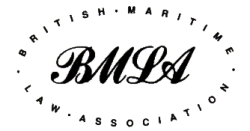
7 July 2000
Directorate General for Environment,
Nuclear Safety and Civil Protection,
Legal Affairs Unit (DGXI.B.3)
Rue de la Loi 200
1049 Brussels
Belgium
carla.devries@cec.eu.int
White Paper on
Environmental Liability
I write on behalf of the British Maritime Law Association. This Association draws its members from the British shipping community including shipowners, insurers, insurance brokers and maritime lawyers. The Association also draws members from other service industries to the maritime trades and is affiliated to the Comité Maritime International.
The proposals contained in the White Paper are clearly aimed at pollution from land based sources but, since pollution from land based sources can escape into the marine environment via beaches, rivers etc. the proposals could cover pollution of the marine environment.
The principal concern of this Association is that nothing should be done which would conflict with or otherwise affect the existing international liability and compensation regime for pollution of the marine environment embodied in the Civil Liability and Fund Conventions 1992, as enacted in the UK in Part VI of the Merchant Shipping Act 1995 and the HNS Convention 1996.
These instruments took many years to develop and remain under constant review to ensure that the limits of liability and other aspects do not fall out of date. The Civil Liability Convention 1992, and its precursor CLC 1969, have between them been ratified or acceded to by over 100 states and the Fund Convention of 1971 and 1992 have received similar support. The 1992 Protocols are attracting increasing support amongst nations which ratified the two earlier Conventions. The HNS Convention awaits further ratifications before it will enter into force.
All EC States with a coast line have embraced the oil pollution Conventions and their Protocols and have been actively involved at a diplomatic level in the drafting of these instruments.
If these Conventions had proved to be ineffective in practice there might be grounds for changing the oil pollution liability and compensation regime. However the CLC and Fund Conventions have operated to great purpose for more than 20 years. A body of case law has built up over the years, for the guidance of those who pay and those who receive compensation. It is widely acknowledged that these instruments and the claims practice which has developed ensure that victims receive prompt and reasonable compensation for legitimate claims.
This international regime has demonstrated its flexibility not only in the handling of compensation claims but also in its willingness to address problems which arise in the interpretation and application of the Conventions. It is the view of this Association and also, we believe, the prevalent view in the international community that pollution of the marine environment should continue to be regulated within the frame work of the existing Conventions. In this context great care should be taken, in drafting laws relating to non-marine environmental pollution within the EC, to ensure that there is a clear interface between ship sourced and land sourced pollution particularly when the basis of liability, the levels of compensation and many other relevant factors differ between land and sea.
This interface could most readily be devised by provisions in any new legislation to dovetail with the so-called channelling provisions in CLC. These provide among other things that the shipowner’s liability under the Convention is to be the sole remedy against him for oil pollution damage from his ship. There is accordingly a treaty obligation on the UK and other contracting states to ensure that no other form of civil liability is imposed on the shipowner for such damage. Any domestic laws on the subject should therefore expressly exclude oil pollution damage for which liability is incurred under CLC. A similar provision will be needed in relation to hazardous and noxious substances once the HNS Convention takes effect in the UK.
Yours faithfully,
Patrick Griggs
Cc Steven Griffiths
Marine, Land and Liability Division
DETR
Zone 3 B/5
Ashdown House
123 Victoria Street
London SW1E 6DE
Email: landquality_enquiries@detr.gsi.gov.uk